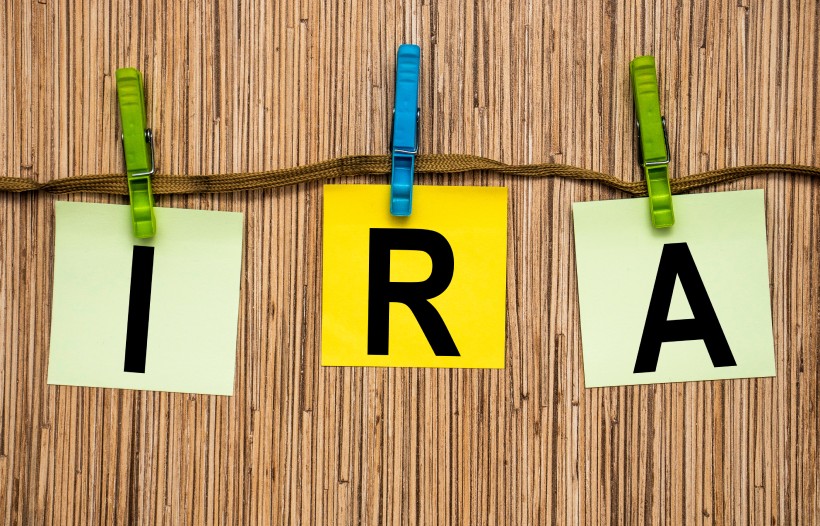As a business owner, retirement planning might not always seem like the top priority. But the truth is, putting together a plan for your future can give you peace of mind and a solid financial foundation when you decide to step back from running your business. One effective way to save for retirement is by setting up an IRA (Individual Retirement Account). Understanding the different types of IRAs available to you can help you choose the best option for your financial situation.
What is an IRA for Business Owners?
An IRA for business owners is a type of retirement account specifically designed to help business owners save for retirement in a tax-efficient way. There are various types of IRAs available, and selecting the right one depends on factors such as the size of your business, the number of employees, and your retirement goals.
A business IRA allows you to put money aside for retirement while enjoying the benefits of tax deductions on contributions. These contributions can grow over time, providing you with a nest egg for your later years. The most common types of IRAs for business owners include the SEP IRA, SIMPLE IRA, and Solo 401(k).
IRA Options For Small Business Owners
Running a small business comes with its own set of challenges, and making time to plan for retirement might not always feel like an immediate priority. However, setting up an IRA for small business owners can help you save for the future while benefiting from tax advantages today.
A SEP IRA, for example, is a simple and cost-effective option for small business owners. It allows employers to contribute a percentage of their income to both their own and their employees’ retirement accounts. SEP IRAs have higher contribution limits than traditional IRAs, and contributions are tax-deductible, meaning you can reduce your taxable income.
For small businesses with fewer employees, a SIMPLE IRA might be a good choice. The SIMPLE IRA allows both the business owner and employees to contribute. Employers must match employee contributions up to a certain percentage, or they can contribute a fixed percentage of their employees’ salaries. While the contribution limits are lower than those of a SEP IRA, the SIMPLE IRA is easy to set up and maintain.
Solo 401(k): A Great Option for Self-Employed Individuals
If you are a self-employed individual or own a small business with no employees, a Solo 401(k) might be the ideal choice for your retirement planning. Also known as an Individual 401(k), this account allows you to contribute both as an employer and an employee, significantly increasing your annual contribution limit.
The Solo 401(k) offers the same contribution limits as a traditional 401(k) but is designed for small business owners with no employees, other than possibly a spouse. It allows for higher contribution limits than both the SEP IRA and SIMPLE IRA. You can contribute both a salary deferral (up to $22,500 in 2024) and profit-sharing contributions, which can increase your total contributions even further.
Understanding the Roth IRA for Business Owners
A Roth IRA for business owners is another popular option to consider. Unlike traditional IRAs, where contributions are made on a pre-tax basis, Roth IRA contributions are made with after-tax dollars. While you won’t get an immediate tax deduction, the major benefit is that the money you contribute grows tax-free. When you retire, you can withdraw the funds without having to pay taxes on them.
A Roth IRA for business owners can be a smart choice if you anticipate being in a higher tax bracket when you retire or if you want the flexibility to take tax-free distributions later on. However, Roth IRAs do have income limits, which may impact whether you’re eligible to contribute directly. If your income is too high to contribute to a Roth IRA directly, you may still be able to use a strategy known as a “backdoor Roth IRA,” which allows higher earners to contribute to a Roth IRA indirectly.
What Are the Advantages of IRAs for Business Owners?
Setting up an IRA for business owners has several benefits, especially when it comes to saving for retirement. First, contributing to an IRA helps lower your taxable income, which can reduce your tax bill in the current year. IRAs offer tax-deferred growth, meaning you won’t have to pay taxes on the earnings in your account until you withdraw them during retirement.
Many IRAs also allow you to invest in a wide range of assets, such as stocks, bonds, mutual funds, and real estate. Depending on your custodian, you may even be able to invest in alternative assets, giving you more flexibility to grow your wealth.
Additionally, IRAs can be a great way to prepare for the future while protecting your business assets. By contributing to an IRA, you are building a financial cushion for retirement and reducing your reliance on selling your business or liquidating other assets.
Choosing the Right IRA for Your Business
Choosing the right IRA for your business depends on several factors. Consider the size of your business, your financial goals, and how much you can afford to contribute each year. Consulting with a financial advisor or tax professional is a good idea, as they can help you select the best option based on your specific needs.
For example, if you’re a small business owner with a few employees, the SEP IRA or SIMPLE IRA might be a good fit. These plans are relatively easy to manage and offer flexibility in terms of contributions. If you’re self-employed or run a business with no employees, a Solo 401(k) could be the best choice, as it allows for higher contributions and more control over your investments.
Working with a Trusted IRA Custodian
When selecting an IRA, it’s important to work with a trusted custodian to ensure your account is managed effectively. Nevada Trust Company® has been helping individuals and businesses with their retirement planning needs for years. With a team of experienced professionals and a focus on customer service, we can help you navigate the process of setting up and managing your IRA.
Setting up an IRA for business owners is a great way to build your retirement savings and reduce your taxable income. With options like the SEP IRA, SIMPLE IRA, Solo 401(k), and Roth IRA, you can tailor your retirement plan to fit your needs and goals. Whether you’re a solo entrepreneur or a small business owner with employees, there’s an IRA option that works for you.
If you’re ready to take the next step in securing your financial future, contact us to learn more about the IRA options available to business owners.






